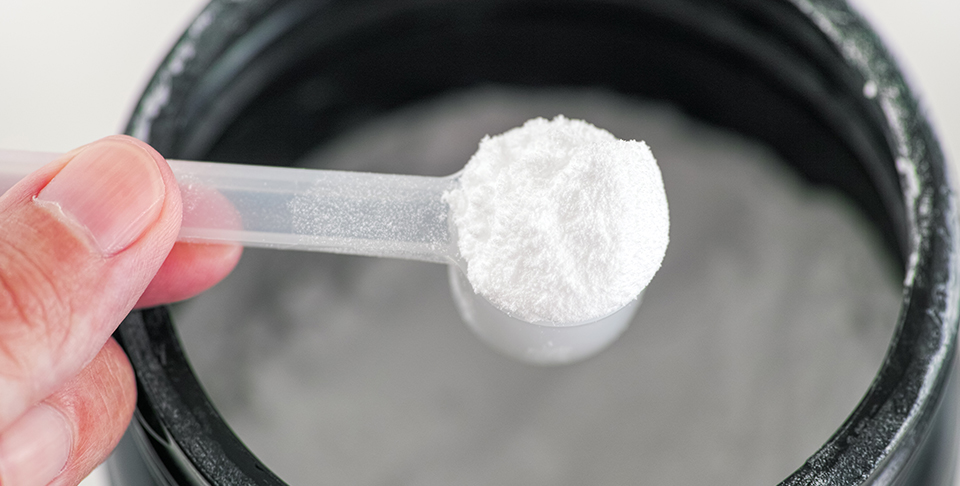Quick Summary
- Nitric oxide (NO) plays a pivotal role in various bodily functions, including dilating blood vessels for improved blood flow & muscle growth.
- Nitric oxide is primarily produced in the body using arginine, which is essential for the process. The chemical reaction involves the conversion of L-arginine into citrulline & nitric oxide.
- Arginine is a conditionally essential amino acid. While it can be found in foods like meat and nuts, it may need to be supplemented externally in certain conditions like for pre-term infants.
- Oral supplementation of arginine often faces absorption challenges due to stomach bacteria & the enzyme arginase, resulting in limited nitric oxide production.
- Recent research focuses on citrulline as it can bypass the metabolic processes that limit arginine. Once ingested, citrulline can convert back to arginine, potentially increasing nitric oxide levels more effectively.
- Multiple studies indicate citrulline can raise plasma arginine levels more effectively than direct arginine supplementation & is also well-tolerated at high intakes.
- Citrulline may have ergogenic effects, potentially increasing muscle protein synthesis & preventing strength decline. It might be especially effective when supplemented in a fasted state.
- Citrulline, particularly in the form of citrulline malate, may improve strength, aerobic performance, & reduce muscle soreness.
- It also may act as a buffering agent against fatigue & a potential treatment for erectile dysfunction.
- Beyond nitric oxide production, arginine plays roles in many medical treatments, from wound healing to chronic diseases.
- Both amino acids offer significant benefits. While current research leans towards citrulline for oral supplementation due to its advantages, the research is ongoing.
- For maximizing ergogenic effects, a daily dose of 6g of arginine or 6-15g of citrulline before exercise is recommended.
- Arginine can also be taken before sleep to potentially boost growth hormone release.
In the ever-evolving realm of supplements, there's a growing debate surrounding two amino acids: Arginine and Citrulline. Both are critical players in the production of nitric oxide, a molecule vital for muscle growth, increased blood flow, & prolonged endurance. So, which one should you choose for your pre-workout mix?
The Nitric Oxide Narrative
Nitric oxide (NO) may be simple in structure, but its role in the body is profound. Renowned for its ability to dilate blood vessels by relaxing the surrounding smooth muscle, NO increases peripheral blood flow to skeletal muscles. This function has potential benefits for muscle growth & endurance.
Arginine's Role
Arginine, a conditionally essential amino acid, serves as the primary ingredient in the body's nitric oxide synthesis. Under certain conditions, especially during one's early life or due to specific health conditions, the body may not produce sufficient amounts of Arginine, necessitating supplementation.
The process for producing NO involves Arginine reacting with oxygen and NADPH, aided by the enzyme nitric oxide synthase, resulting in the formation of Citrulline and nitric oxide. However, a significant hitch with Arginine is its absorption rate. Much of orally taken Arginine is eliminated by stomach bacteria & arginase enzymes in the gut and liver. Some studies indicate only about 38-70% absorption, which significantly affects its utility as a NO supplement.
Enter Citrulline
Found in watermelon rinds & not directly used in protein synthesis, Citrulline has emerged as an attractive alternative to Arginine. Unlike Arginine, Citrulline isn't extensively metabolized in the gut or liver. It's converted back into Arginine in the kidneys, making it a more efficient way to raise plasma Arginine levels. However, this conversion requires energy, posing the question: Is it worth the extra ATP?
The Studies Speak
Research suggests Citrulline may have an edge:
- Oswoska et al. (2004) discovered that Citrulline was more effective than Arginine at raising plasma Arginine levels in rats with significant intestinal resection.
- Schwedhelm et al. (2008) found that Citrulline supplementation raised plasma l-arginine levels more effectively than l-arginine itself.
- Moinard et al. (2008) showed that large doses of Citrulline were tolerated without adverse effects, unlike large doses of other amino acids.
- Berthe et al. (2011) proposed sustained release of Citrulline to maintain elevated Arginine & Citrulline levels.
Besides its role in NO production, Citrulline may also enhance muscle protein synthesis, possibly rivalling the effect of leucine. This, along with the potential to improve strength, aerobic performance, and muscle soreness, positions Citrulline as a rising star in the supplement world.
Arginine's Strong Suit
Despite the challenges, Arginine remains a linchpin for nitric oxide production & boasts a range of medical uses from wound healing to managing obesity. While its ergogenic benefits compared with Citrilline are still under scrutiny, its importance cannot be disregarded.
The Verdict
Both Arginine & Citrulline have their merits, with a growing body of research leaning towards Citrulline as the preferred supplement for nitric oxide production.
For those looking to maximize ergogenic effects, a daily intake of 6g of Arginine and/or 6-15g of Citrulline before exercise is suggested, with Arginine also being consumed before sleep to possibly enhance growth hormone release.
In the end, the choice between Arginine & Citrulline comes down to individual preference & the specific outcomes one desires. As research progresses, clearer recommendations will emerge, but for now, both supplements have a rightful place in the fitness & health community.
References
1. Schwedhelm E, Maas R, Freese R, Jung D, Lukacs Z, Jambrecina A, Spickler W, Schulze F, Böger RH. ‘Pharmacokinetic and pharmacodynamic properties of oral L-citrulline and L-arginine: impact on nitric oxide metabolism.’ Br J Clin Pharmacol. 2008 Jan;65(1):51-9. Epub 2007 Jul 27.
2. Bode-Böger SM, Böger RH, Galland A, Tsikas D, Frölich JC. ‘L-arginine-induced vasodilation in healthy humans: pharmacokinetic-pharmacodynamic relationship.’ Br J Clin Pharmacol. 1998 Nov;46(5):489-97.
3. Castillo L, Chapman TE, Yu YM, Ajami A, Burke JF, Young VR. ‘Dietary arginine uptake by the splanchnic region in adult humans.’ Am J Physiol 1993; 265: E532–E539
4. Osowska S, Moinard C, Neveux N, Loï C, Cynober L. ‘Citrulline increases arginine pools and restores nitrogen balance after massive intestinal resection.’ Gut. 2004 Dec;53(12):1781-6.
5. Schwedhelm E, Maas R, Freese R, Jung D, Lukacs Z, Jambrecina A, Spickler W, Schulze F, Böger RH. ‘Pharmacokinetic and pharmacodynamic properties of oral L-citrulline and L-arginine: impact on nitric oxide metabolism.’ Br J Clin Pharmacol. 2008 Jan;65(1):51-9. Epub 2007 Jul 27.
6. Moinard C, Nicolis I, Neveux N, Darquy S, Bénazeth S, Cynober L. ‘Dose-ranging effects of citrulline administration on plasma amino acids and hormonal patterns in healthy subjects: the Citrudose pharmacokinetic study.’ Br J Nutr. 2008 Apr;99(4):855-62. Epub 2007 Oct 22.
7. Berthe MC, Darquy S, Breuillard C, Lamoudi L, Marc J, Cynober L, Chaumeil JC, Couderc R. ‘High plasma citrulline and arginine levels ensured by sustained-release citrulline supplementation in rats.’ Nutrition. 2011 Nov-Dec;27(11-12):1168-71. Epub 2011 Apr 9.
8. Cynober L, Moinard C, De Bandt JP. ‘The 2009 ESPEN Sir David Cuthbertson. Citrulline: a new major signaling molecule or just another player in the pharmaconutrition game?’ Clin Nutr. 2010 Oct;29(5):545-51. Epub 2010 Aug 16.
9. Thibault R, Flet L, Vavasseur F, Lemerle M, Ferchaud-Roucher V, Picot D, Darmaun D. ‘Oral citrulline does not affect whole body protein metabolism in healthy human volunteers: Results of a prospective, randomized, double-blind, cross-over study.’ Clin Nutr. 2011 Dec;30(6):807-11. Epub 2011 Jul 5.
10. Rougé C, Des Robert C, Robins A, Le Bacquer O, Volteau C, De La Cochetière MF, Darmaun D. ‘Manipulation of citrulline availability in humans.’ Am J Physiol Gastrointest Liver Physiol. 2007 Nov;293(5):G1061-7. Epub 2007 Sep 27.
11. Bendahan D, Mattei JP, Ghattas B, Confort-Gouny S, Le Guern ME, Cozzone PJ. ‘Citrulline/malate promotes aerobic energy production in human exercising muscle.’ Br J Sports Med. 2002 Aug;36(4):282-9.
12. Pérez-Guisado J, Jakeman PM. ‘Citrulline malate enhances athletic anaerobic performance and relieves muscle soreness.’ J Strength Cond Res. 2010 May;24(5):1215-22.
13. Giannesini B, Le Fur Y, Cozzone PJ, Verleye M, Le Guern ME, Bendahan D. ‘Citrulline malate supplementation increases muscle efficiency in rat skeletal muscle.’ Eur J Pharmacol. 2011 Sep 30;667(1-3):100-4. Epub 2011 Jun 6.
14. Takeda K, Machida M, Kohara A, Omi N, Takemasa T. ‘Effects of citrulline supplementation on fatigue and exercise performance in mice.’ J Nutr Sci Vitaminol (Tokyo). 2011;57(3):246-50.
15. Hickner RC, Tanner CJ, Evans CA, Clark PD, Haddock A, Fortune C, Geddis H, Waugh W, McCammon M. ‘L-citrulline reduces time to exhaustion and insulin response to a graded exercise test.’ Med Sci Sports Exerc. 2006 Apr;38(4):660-6.
16. Cormio L, De Siati M, Lorusso F, Selvaggio O, Mirabella L, Sanguedolce F, Carrieri G. ‘Oral L-citrulline supplementation improves erection hardness in men with mild erectile dysfunction.’ Urology. 2011 Jan;77(1):119-22.
17. McKnight JR, Satterfield MC, Jobgen WS, Smith SB, Spencer TE, Meininger CJ, McNeal CJ, Wu G. ‘Beneficial effects of L-arginine on reducing obesity: potential mechanisms and important implications for human health.’ Amino Acids. 2010 Jul;39(2):349-57. Epub 2010 May 1.
18. Álvares TS, Meirelles CM, Bhambhani YN, Paschoalin VM, Gomes PS. ‘L-Arginine as a potential ergogenic aid in healthy subjects.’ Sports Med. 2011 Mar 1;41(3):233-48. doi: 10.2165/11538590-000000000-00000.


.jpg)
